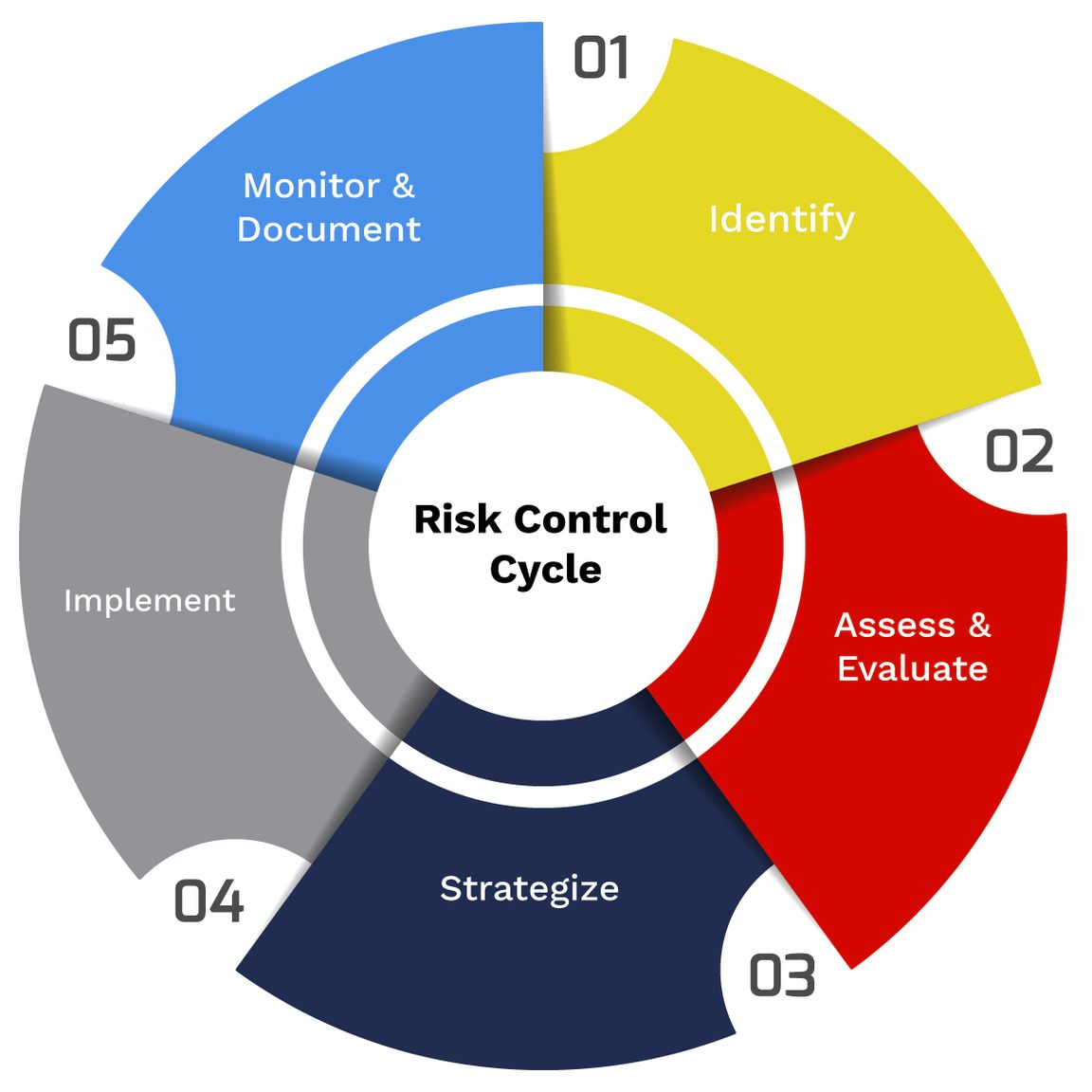
The risk control cycle is a process that helps firms evaluate potential losses and take action to reduce or eliminate such threats. It is a technique that utilizes findings from risk assessments, which involve identifying potential risk factors in a company’s operations, such as technical and non-technical aspects of the business, financial policies and other issues that may affect the well-being of the firm. The cycle emphasizes the necessity for project managers to identify, assess, control, and prevent the risks faced by the project throughout its development ?.
The risk management lifecycle is a similar process that involves five steps: identifying risks, assessing their impact, defining risk control strategies, monitoring your actions, and reporting the results . The goal is to identify and reduce potential risk factors in a company’s operations, such as technical and non-technical aspects of the business, financial policies and other issues that may affect the well-being of the firm. Risk control methods include avoidance, loss prevention, loss reduction, separation, duplication, and diversification ?.
